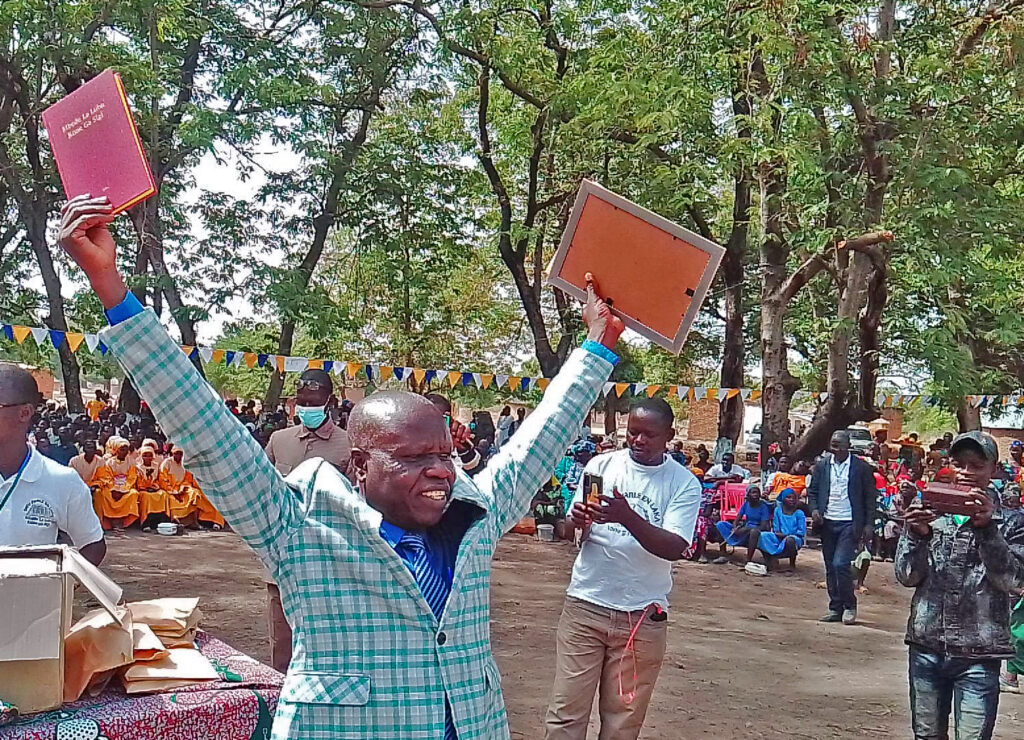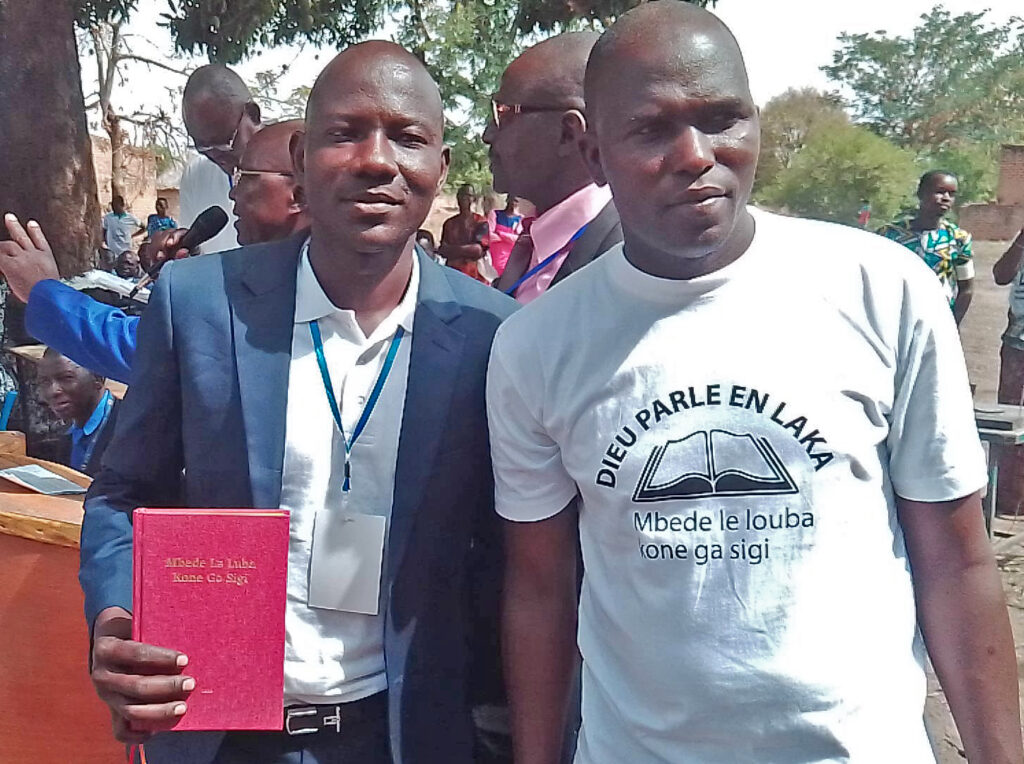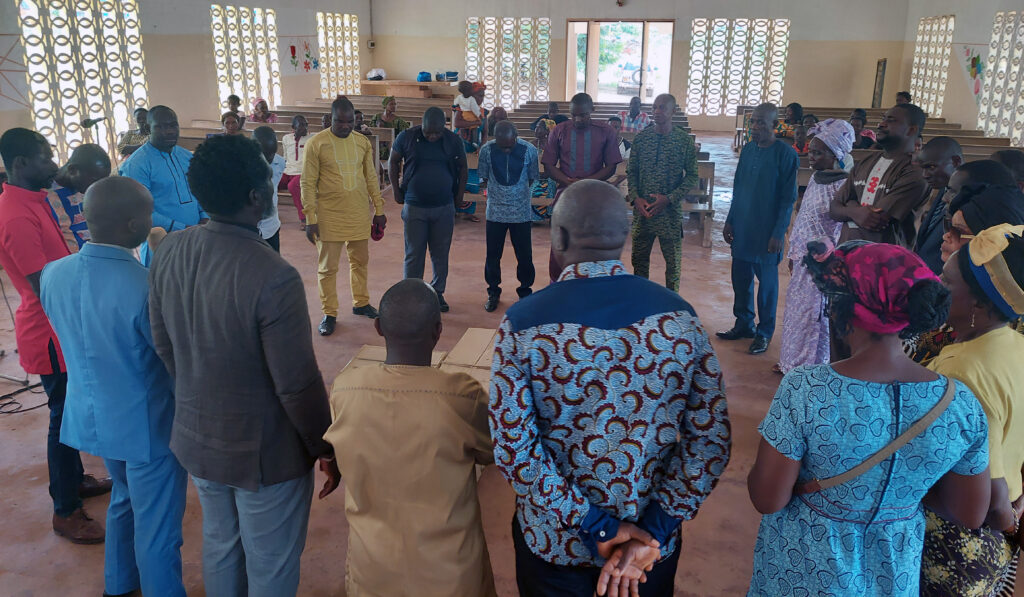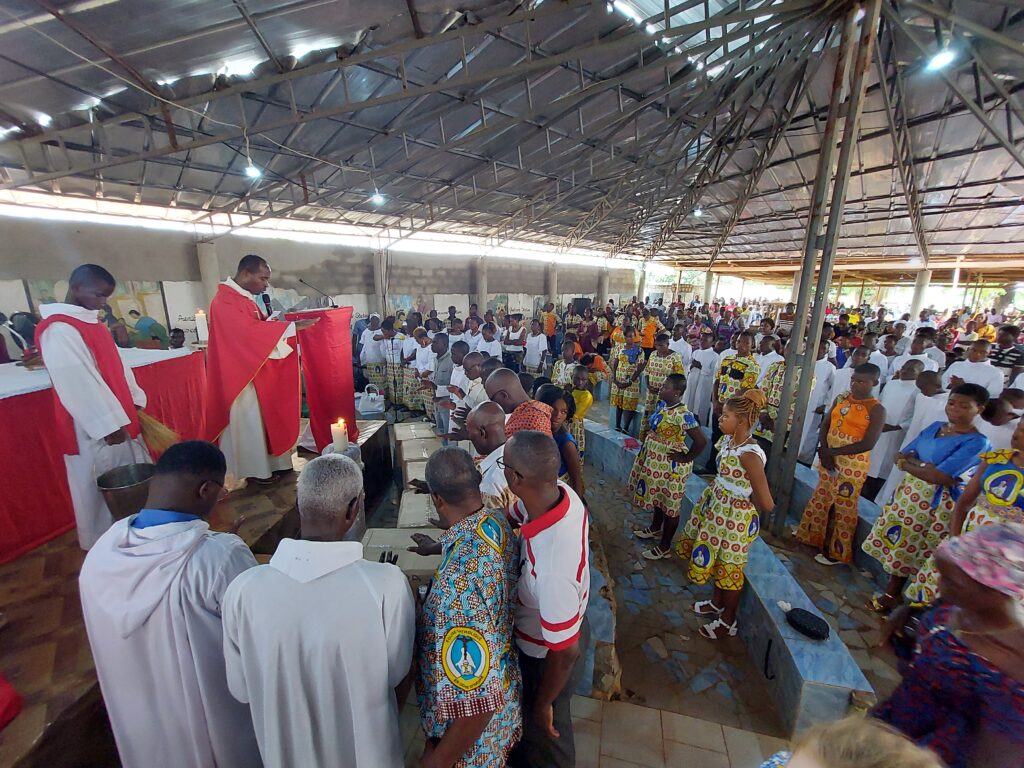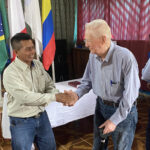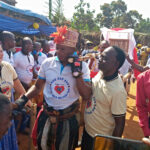Hopefully the Last Crash
Dee accidentally crashed a motorcycle into a tree. On the third day of the JAARS motorcycle course, the instructors took the three participants on some trails in the woods behind JAARS.
“I misunderstood where I was supposed to take the bike,” Dee recalled. She mistakenly took it up on a log, causing the tire to slip and slide to the side. It went into a tree. Thankfully, the bike was only going about three miles an hour. Despite some bruises, she says, “It was an experience worth having. And hopefully it’s my last crash.” The accident taught Dee that things can go wrong, but it’s not the end of the world.
Road travel can easily go awry in West Africa, where Dee will serve with Wycliffe Bible Translators to develop oral Bible stories for minority languages. In that part of the world, giant potholes, ruts, sand during the dry season, and mud during the rainy season cover the roads. A motorcycle will be Dee’s primary mode of transportation in West Africa, so she wanted to learn as much as she could while here in the U.S.
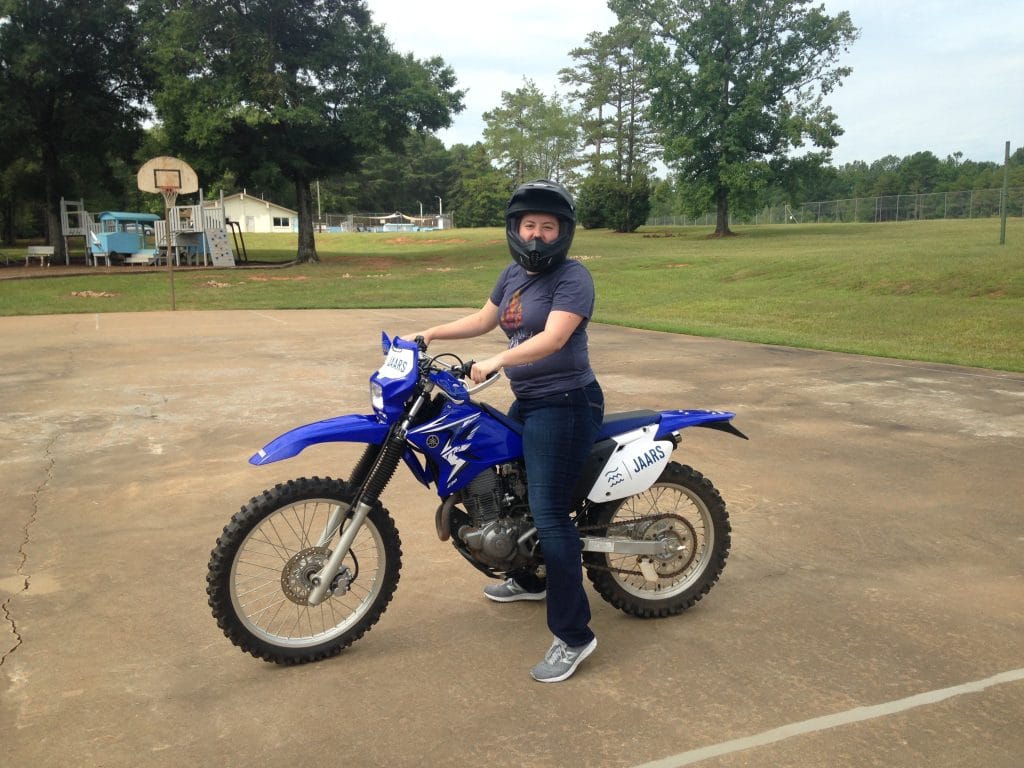
Dee had driven a motorcycle before, but only for about 10 hours in a class she took about six months ago. At JAARS course, “It was definitely helpful to get basic.” The students learned how to drive the bikes in a parking lot on JAARS Center before venturing into an open, grassy area behind the parking lot and then, on the third day, onto the trails. “They very much tailored [the course] to what our skill levels were,” Dee explains.
The other participants, Megan and Robert, also didn’t have much prior motorcycle experience. Megan and Robert will both serve in Papua New Guinea—Megan as a recruiter and Robert as a helicopter pilot. Robert will indubitably ride a motorcycle to the hangar every day, so it’s important for him to know how to drive on slick roads peppered with pot-holes.
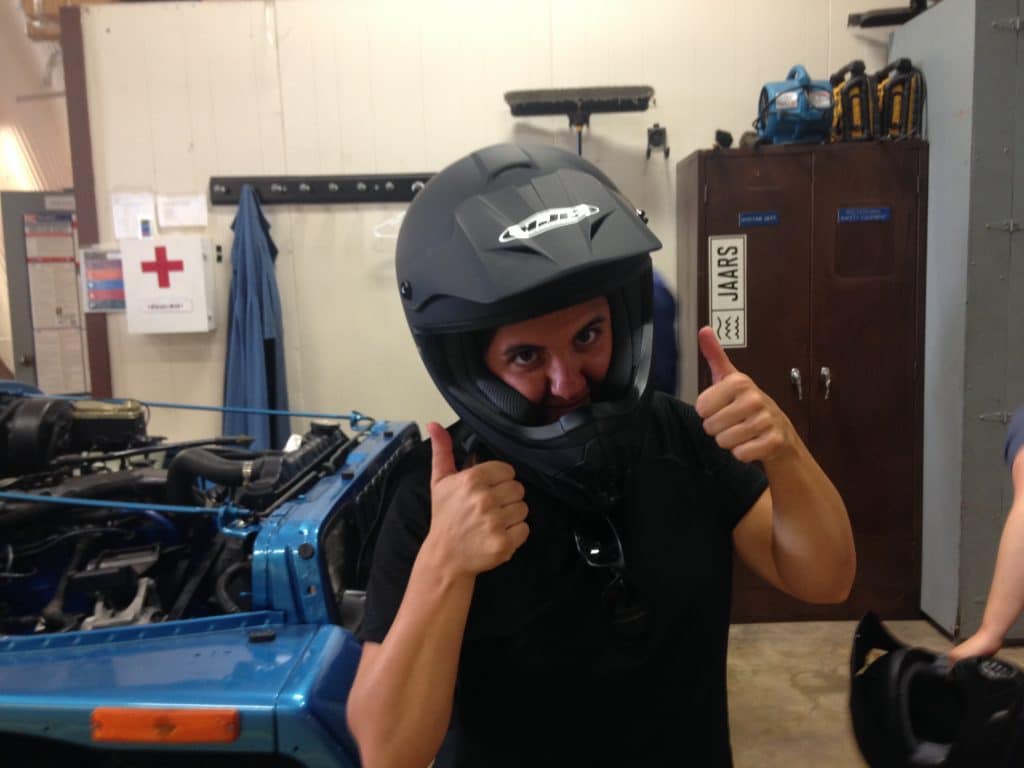
Besides learning how to drive, the trio also learned how to maintain the bikes. “[The instructors] had us change a tire and taught us what kind of tread you want for what type of an environment,” Dee says. The instructors explained the advantages and disadvantages of the treads and what types of tools they should take with them at all times.
Dee figured out how to hoist a 40—pound tire into the correct spot, thread the axle through, and hold it there. “I love mechanical stuff, so it was really fun. I like the physical challenge of it.”
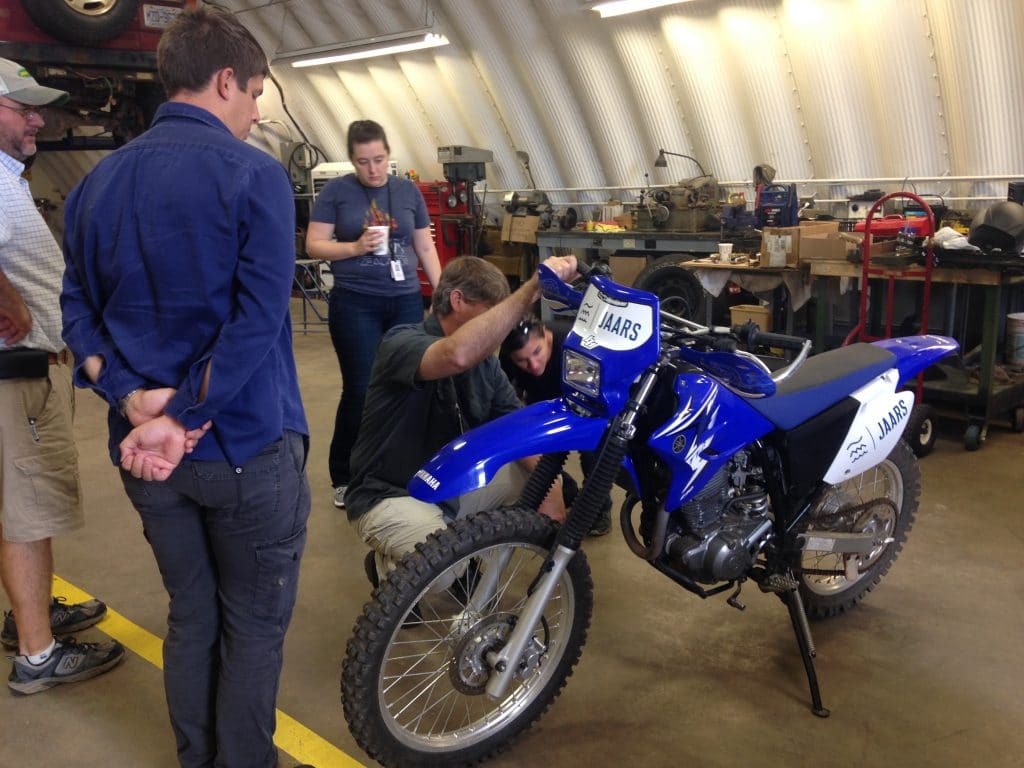
Dee’s previous class, based on biking conditions in the U.S., was quite different from the JAARS course. “If you’re motorbiking in the U.S., you can call a tow truck,” Dee says. Thus, that class didn’t focus on the mechanics of fixing your bike or getting out of a rut. “They focused a lot more on making sure you tell people where you’re going and [how to] signal properly.”
Dee enjoyed the practicality of the course as well as her instructors, whom she described as awesome and hilarious. “They really knew what they were talking about. And, unlike the other motorcycle course I took, they gave you more options and more useful information about what you need to evaluate.”
Equipped with the information she soaked up at the JAARS motorcycle training course, hopefully Dee’s run-in with the tree will be her last crash as she serves Bible translation in West Africa.
You can help us minimize the number of motorcycle crashes for Bible translators and other support workers by giving to our Training Solutions here. Thank you!



























































